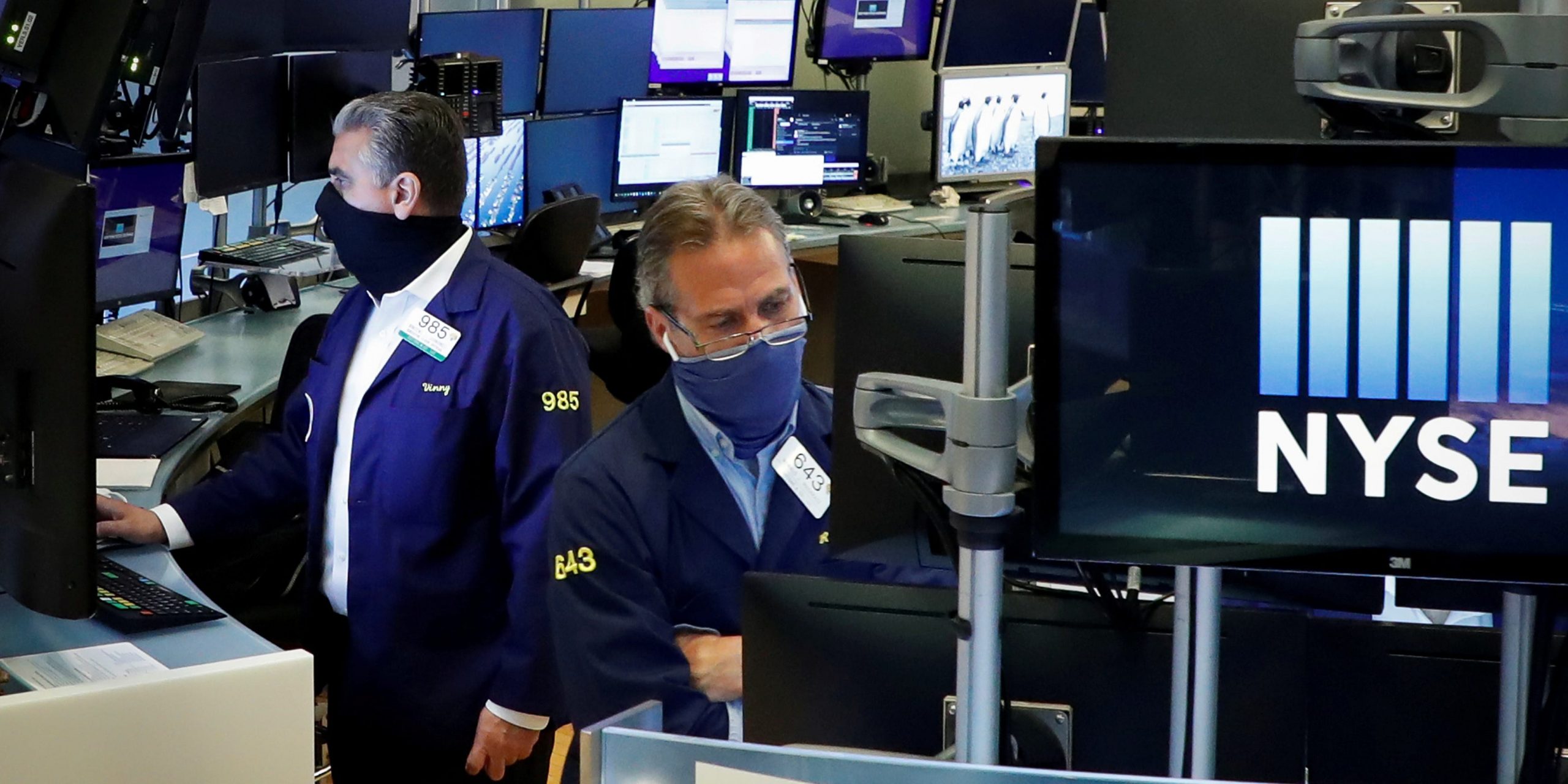
Brendan McDermid/Reuters
- US stocks were set to climb again on Thursday, after taking a breather the day before.
- Weak US inflation data released on Wednesday sent bond yields and the dollar lower.
- Fed chair Jerome Powell said returning to full employment needed a ‘society-wide’ effort.
- Sign up here for our daily newsletter, 10 Things Before the Opening Bell.
US stocks were set to climb on Thursday morning after flatlining the previous day, with investors weighing a weaker-than-expected inflation report and a dovish tone from the Federal Reserve.
Bond yields and the dollar slipped overnight in the wake of the inflation print, which lowered expectations of rapid growth and price rises, at least in the short term.
S&P 500 futures were up 0.27% on Thursday, after the index closed a whisker lower the previous day, while Nasdaq futures rose 0.34%. Dow Jones futures were 0.25% higher, after closing up 0.2% at a record high.
Stock markets in China, Japan, South Korea and Taiwan were all closed for a holiday on Thursday.
Europe’s continent-wide Stoxx 600 index rose 0.21% in early trading, while the UK’s FTSE 100 climbed 0.23%.
Official figures on Wednesday showed that core US inflation was flat in January, despite economists expecting a 0.2% increase. Core consumer price index inflation was up 1.4% year on year.
"It isn't a huge surprise that the recent virus-induced weakness in activity and employment appears to be weighing on inflation," said Andrew Hunter, senior US economist at Capital Economics in a note.
Yet Hunter and other analysts said they thought inflation would rise later in the year, especially in the year-on-year figures, which will be compared to the very low levels of spring 2020.
Leslie Preston, senior economist at TD Economics, said: "In addition, ramping up costs for many businesses as the economy opens more fully may also trigger higher inflationary pressures."
Lower-than-expected inflation caused bond prices to rise and so yields to fall. Higher inflation pushes up bond yields, as investors demand more of a return to account for price erosion.
The yield on the 10-year US Treasury note was down 1.4 basis points on Thursday morning to 1.138%, having touched 1.2% earlier in the week.
Lower bond yields weighed on the dollar, as they make the returns of dollar-denominated assets less attractive. The dollar index slipped to below 90.4 after touching 91.6 last week. It was up 0.06% on Thursday morning to 90.42.
As stock markets took pause on Wednesday in the wake of the inflation data, Federal Reserve chair Jerome Powell stressed that the US economy needed more support.
Powell told the Economic Club of New York that the returning to full employment "will require a society-wide commitment" and will take "more than supportive monetary policy."
Analysts viewed his comments as dovish, while Democrats said it showed the need to rapidly pass Joe Biden's $1.9 trillion stimulus package.
Oil prices slipped on Thursday morning from around their highest levels in 13 months. Brent crude was down 0.55% to $61.13 while WTI crude was 0.51% lower at $58.37.
Bitcoin was off by 3.6% to $45,039, having hit a high of $48,000 on Tuesday after Elon Musk's Tesla said it had bought $1.5 billion of the cryptocurrency.